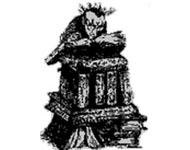ASHCROFT vs ACLU
JOHN ASHCROFT, Petitioner v. AMERICAN CIVIL LIBERTIES UNION, et al., Respondents No. 00-1293 In the Supreme Court of the United States On Petition for Certiorari to the U.S. Court of Appeals for the Third Circuit BRIEF AMICI CURIAE OF THE SOCIETY FOR THE SCIENTIFIC STUDY OF SEXUALITY, THE INSTITUTE FOR ADVANCED STUDY OF HUMAN SEXUALITY, THE SEXUAL HEALTH NETWORK, THE [...]


